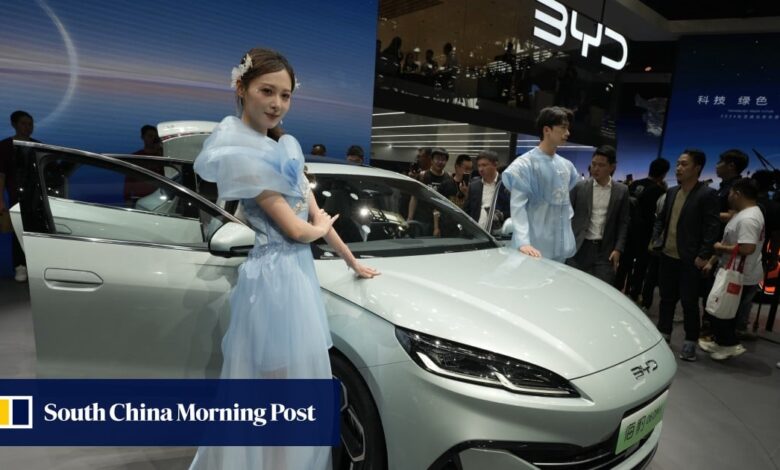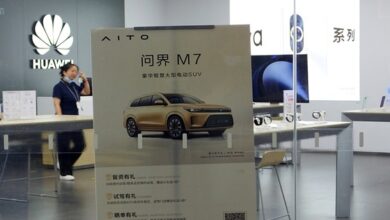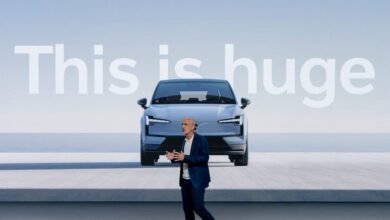China EV wars: BYD mounts ‘big challenge’ to petrol-guzzling rivals with its new fuel-efficient hybrid technology

The world’s bestselling EV builder, backed by Warren Buffett’s Berkshire Hathaway, said two brand new models to be fitted with the new technology will become pioneers that help propel a transition to electrification on China’s roads.
The two new models fitted with the latest DM (dual model) technology – the Qin L and the Seal 06 – can go as far as 2,100km on a single charge with a full tank of petrol, BYD claims. The batteries used to power the basic versions offer a driving range of up to 80km.
The fuel consumption per 100km, when the batteries are depleted, is a record low 2.9 litres, the statement said. In comparison, a typical plug-in hybrid car uses 3 to 5 litres of petrol for every 100km travelled.
BYD said the new models can save owners an annual 9,682 yuan (US$1,336) in fuel costs compared to petrol cars.
DM is the fifth generation of the technology developed by BYD since it launched its first plug-in hybrid car, the F3, in 2008.
Both the Qin L and Seal 06 are mid-sizes sedans that will compete with the likes of VW’s Sagitar and Toyota’s Corolla, which are powered by petrol engines.
Entry-level versions of the Qin L and Seal 06 are both priced at 99,800 yuan, compared to the Sagitar’s 127,900 yuan and the Corolla’s 116,800 yuan.
“BYD’s new models will be a big threat to established carmaking giants in China,” said Eric Han, a senior manager at Suolei, an advisory firm in Shanghai. “An increasing number of budget-conscious consumers will view [BYD’s] pure-electric and hybrid models as top choices since they are attractive in pricing and fuel efficiency.”
VW, the mainland’s bestselling carmaker, handed 3.2 million vehicles – the vast majority petrol-powered – to Chinese customers last year, up 1.6 per cent from 2022.
It narrowly beat BYD which delivered nearly 3 million battery-powered cars on the mainland last year.
BYD posted a record net profit of 30.04 billion yuan for 2023, up 81 per cent from a year earlier.
Its founder and chairman, Wang Chuanfu, told an investors’ conference in March that the carmaker is targeting sales of 3.6 million units in 2024, up 20 per cent from last year.
The projected year-on-year increase would represent just a third of the 62.3 per cent jump recorded in 2023.
Since then, the prices of 50 models across a range of brands have dropped by 10 per cent on average, Goldman Sachs said in a report last month.



